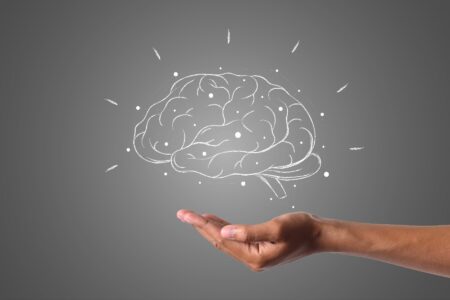Addiction is a condition in which a person feels a strong need for something, whether it is a substance, an activity, or a relationship. A strong urge or irresistible desire to use the substance or repeat the activity is the most important characteristic of addiction.
TABLE OF CONTENTS
What is addiction?
How does addiction develop?
Various addictions
How to get rid of addiction
Where can I get further help?
What is addiction?
 Addiction is a repetitive pattern of behavior that causes harm to both a person's physical and mental health, despite which they are unable to give up the addictive factor. Addictions are diverse - from substance use, such as alcohol or nicotine, to behavioral addictions, such as smartphone addiction or relationship addiction.
Addiction is a repetitive pattern of behavior that causes harm to both a person's physical and mental health, despite which they are unable to give up the addictive factor. Addictions are diverse - from substance use, such as alcohol or nicotine, to behavioral addictions, such as smartphone addiction or relationship addiction.
Addiction Addiction is not just a lack of willpower, but a complex problem that needs to be addressed. Addiction is often considered a behavioral disorder, but it can also be viewed as a chronic illness that can affect anyone.
Like any other illness, addiction has specific symptoms. One of the main ones is the excessive use or misuse of an addictive substance or activity, such as alcohol, drugs, gambling, or sex, and the inability to stop using it.
How does addiction develop?
Addiction often begins with a habit that, over time, becomes an uncontrollable need. Human behavior is driven by positive and negative emotions. From a biological perspective, the goal of human activity is to satisfy one's needs, the fulfillment of which is accompanied by positive emotions. By using substances, this satisfaction is achieved seemingly effortlessly and at a level that cannot be achieved in other ways.
Thus, the development of addiction often begins with an easily arising, enjoyable feeling of well-being that a person experiences when consuming addictive substances. However, the negative effects of the disease only become apparent later, when life becomes uncontrollable. Addictive behavior gradually begins to affect all important areas of life. Mental health and relationships with loved ones, as well as work and hobbies, begin to suffer.
Biological, psychological, and social factors also influence the development of addiction. For example, genes and brain chemical imbalances can increase susceptibility to addiction. Stress, trauma, and environment also play a role.
Various addictions
Codependency
Codependency is a term that is often confused with dependency, relationship addiction, or love addiction. Codependency is a psychological phenomenon in which a person supports the addiction problems of another person, usually a loved one, through their behavior. (For example, a spouse who consistently provides financial resources for excessive alcohol consumption.) The co-addict may not have an addiction themselves.
This usually occurs with one's partner, where the behavior is driven by attachment, a family role division that has developed during the relationship, or shame about revealing the problem. However, a co-addict can also be the addict's other relatives or acquaintances, children, parents, friends, or coworkers. Awareness and therapy are the basis for becoming free from co-dependency.
In a dependent relationship one of the partners is emotionally highly dependent on the other. Relationship addict can be in any role - a wife clings to her violent and irresponsible husband, a father builds his life on his son's achievements, a mother fills her days solely with caring for a child suffering from conduct disorder and completely forgets herself.
Alcohol addiction
In Estonia, it is estimated that one third of all alcohol consumers are heavy drinkers, including nearly 60,000 people who are addicted to alcohol.
Alcohol addiction is a chronic disease that affects both physical and mental health. The most common alcohol-related health problems are cardiovascular diseases, cancerous tumors, mental health problems, liver diseases and pancreatitis.
Overcoming this requires conscious steps and support. The first step in overcoming alcohol addiction is recognizing the problem and seeking help. Alcohol withdrawal can be a difficult process because it can cause both physical and emotional difficulties.
Effective recovery from alcohol addiction often involves professional treatment, including therapy and a supportive environment. It is important to focus on lifestyle changes and recovery to regain your health. Determination and consistency are essential if you want to become alcohol-free. Many people have been able to overcome their addiction and return to a fulfilling life.
Smoking
Smoking creates a strong addiction, the main cause of which is nicotine. Nicotine addiction considered equivalent to the addictive strength of heroin or cocaine.
Many who want to break free from addiction face a difficult question: how Quit smoking? Breaking free from nicotine addiction requires willpower, support, and knowledge of how to cope with the withdrawal symptoms of quitting smoking.
Common symptoms such as anxiety, difficulty concentrating and insomnia can make the process difficult in the first few weeks of quitting. However, nicotine withdrawal symptoms are temporary and will gradually ease. It is important to find healthy alternatives to help replace bad habits, such as physical activity. Quitting smoking is difficult, but it can be managed, making your life healthier and more enjoyable.
Sex addiction
Sex addiction is a condition in which sexual activity in a person's life becomes excessive and uncontrollable. A sex addict may experience a strong need for sexuality that negatively affects their relationships, work life, and mental well-being.
Sex addiction can manifest itself in a constant search for sexual partners, excessive use of pornography, or other sexual behaviors that have become addictive. An increased and intense desire for sexual intercourse does not immediately indicate sex addiction. Sex addicts may feel shame and guilt, but they often have difficulty stopping.
Sex addiction can lead to emotional and physical exhaustion, which is why it is important to seek professional help to recover and achieve a healthier life. The first step in overcoming sex addiction is to acknowledge the problem and seek help from a professional, such as a therapist or counselor, who is experienced in dealing with addictive behaviors.
Smartphone addiction
In today's digital age, smartphone addiction is a growing problem that affects adults, teenagers, and even children. Smartphone addiction is excessive use of smart devices that interferes with normal life. Smartphone addiction can mean both phone and computer addiction. Smartphone addiction in children requires special attention, as excessive time on smart devices can affect their development and mental health.
To reduce addiction, it is important to focus on awareness and planned activities. Smartphone addiction Treatment often involves changing habits and finding alternatives, such as physical activity or, in the case of children, joint family activities. Although specific methods of treating computer addiction are still being sought, the support of both families and specialists plays an important role in ensuring that young people grow up in a healthy and balanced environment.
Drug addiction
Drug addiction is a serious problem that can develop not only with prescription drugs, but also with certain over-the-counter medications. Addictive drugs include strong painkillers, sedatives, sleeping pills, and drugs used to treat attention deficit hyperactivity disorder.
Among prescription drugs, the most feared addiction is to drugs such as tramadol, imovane, valocordin, diazepam, or rivotril. In the case of over-the-counter drugs, there have been reports of addiction to the cold medicine xymelin and solpadeine.
Drug addiction is a serious problem, so it is important to consult a doctor if you suspect or fear it. Mere fear of addiction should not be a reason to stop necessary treatment. In case of such concerns, it is recommended to consult a qualified medical professional who can provide appropriate advice. In order to prevent drug addiction, it is extremely important to use medications consciously and responsibly according to the doctor's instructions.
Other addictions
In addition to the addictions discussed above and other more widely known addictions, such as drug addiction or gambling addiction, there are also several other, more hidden dependencies.
Sugar addiction or sugar addiction, is manifested in an uncontrollable craving for sweets containing sugar. This can significantly affect a person's health, causing diabetes, weight gain, lack of energy and mood swings. Getting rid of sugar addiction requires conscious food choices and changing habits. In the same category are also food addiction, where a person uses food as a means of emotional comfort.
All of these addictions have a serious impact on a person's daily life and require thorough attention. For each form of addiction, it is important to understand its root causes and take steps to overcome it. Timely intervention, support, and professional help are key to helping a person break free from addiction and restore balance to their life.
How to get rid of addiction?
Recovery from addiction is a long and often difficult process that begins with awareness and recognition. The first step is for the person to recognize and admit that they have an addiction and that this addiction is a problem that requires professional intervention. Once the person is ready to acknowledge their addiction, they can begin the journey of quitting.
Another important step is to seek support and see a professional, such as a counselor or doctor. Professional help is essential because overcoming addiction involves not only physical withdrawal, but also psychological support and therapy. Addiction treatment often focuses on psychotherapy and resocialization to help the person cope with the problems of everyday life without the addictive substances.
Third, it is important to take responsibility for your recovery and understand that it is an ongoing process that requires commitment and consistency. Every step in recovery is important, and even small steps help. It is also recommended to join support groups where you can share experiences and get support from other people who have overcome similar difficulties.
Where can I get further help?
If you have decided to break free from addiction, you can get more information to raise awareness or get help. From the Peaasi.ee website, where the necessary materials and websites are grouped by dependencies.
On the same portal, you can get free online counseling: https://noustamine.peaasi.ee/kysi-noustajalt
Summary
Addiction is a complex and often long-term condition that affects a person's physical and mental well-being. However, recovery from addiction is possible and begins with awareness and recognition of the addiction. The first step is to understand that addiction is a problem that requires professional intervention and support.
The treatment process can be long and complex, involving both physical withdrawal and mental and psychological recovery. Psychotherapy, counseling, and social support are important prerequisites for recovery, as breaking free from addiction is not just about quitting the substance or behavior, but also finding new, healthy coping strategies.
It is important for the person to take responsibility for their own recovery and understand that overcoming addiction is an ongoing and consistent process. It is also recommended to seek support from family, friends, and professionals, and to join support groups where you can share experiences and receive support from others who have overcome similar difficulties.




